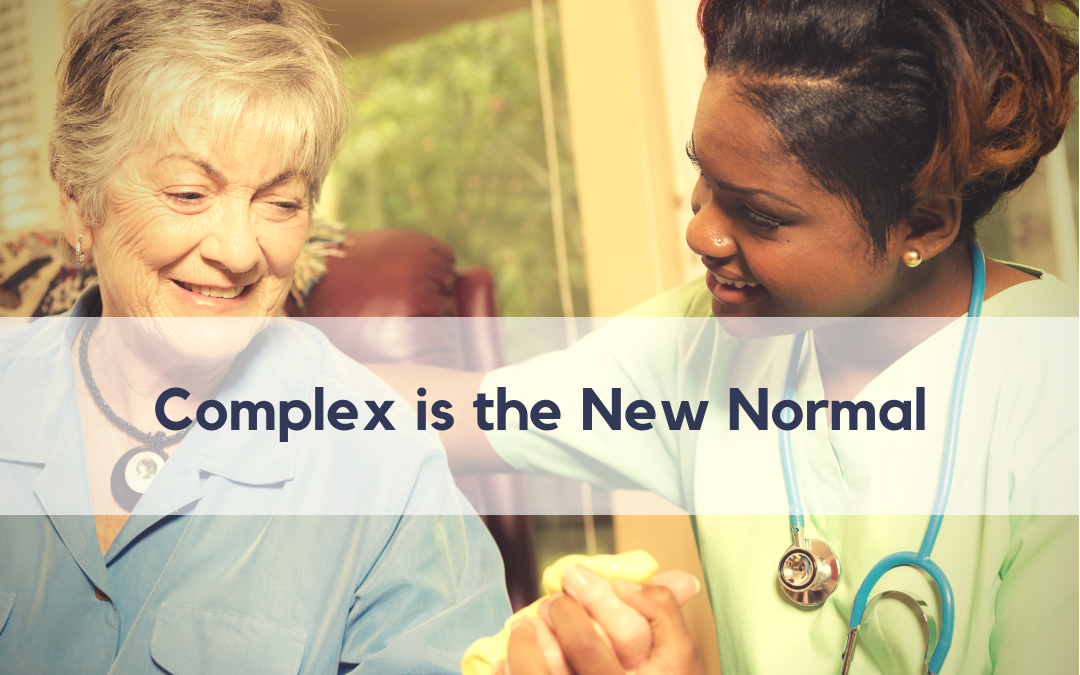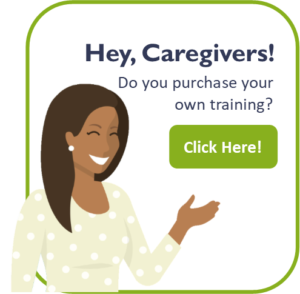By 20 30, the over 65 population will nearly triple as a result of aging Baby Boomers.
But, this group is not just aging—many suffer from multiple chronic illnesses
and have complex healthcare needs.
Some stats:
- More than 6 out of every 10 Boomers have more than one chronic condition.
- Every 66 seconds someone in the United States develops Alzheimer’s disease.
- The next decade will deliver about 55 percent more people with diabetes, and 25 percent more will be obese.
- Other common chronic conditions include heart & lung disease, arthritis, and limited mobility.
The Consequences
The consequences of poorly-trained (or untrained) caregivers can be costly and dangerous. Here are just a few things that can go wrong:
- Clients with Alzheimer’s disease are at high risk for abuse. Caregivers who lack training in caring for clients with Alzheimer’s admit to becoming dangerously frustrated and easily overwhelmed by the situation.
- Clients with mobility problems can suffer dangerous falls when Caregivers lack training in safe transfers and ambulation.
- Clients with heart and/or lung problems may develop dangerous or deadly symptoms that go unnoticed when caregivers lack training in recognizing and reporting abnormal observations.
Training that Meets the Complex Needs of the Clients You Serve
Every caregiver training program should cover the basics—but you can’t stop there! It’s important to arm your team with the most up-to-date training that gives them the tools they need to care for the complex clients they serve. Here’s how:
- Give your team the initial training they need with intheknow‘s Certified Caregiver Training Program! This program is an eight-hour series in basic caregiving skills that will educate, challenge, inspire, and CERTIFY every caregiver on your team.
- Offer advanced training. “Specialized caregivers” have advanced training in common conditions, such as Alzheimer’s disease, dementia, diabetes, heart disease, or even common mental health conditions. Caregiver specialists are simply more competent. Competent caregivers have better client outcomes and increased client satisfaction. Read: Creating Advanced Roles for Caregiver Specialists.
- Well-trained caregivers reduce hospital admissions and re-admissions by knowing what’s “normal.” Knowing what’s normal leads to early reporting and early intervention as soon as something abnormal is observed. Early intervention reduces hospitalizations. Reducing hospitalizations reduces risk and costs! Download: 5 Ready-To-Use Home Care Tools for Preventing Readmissions to the Hospital.
Want to Learn More?
Fill out the form below to talk to a Caregiver Training Advisor today!
Find out how intheknow can help you fill the gaps and put your care team
on the road to safe and successful client care—in every complex situation.
[wpforms id=”5313″]



